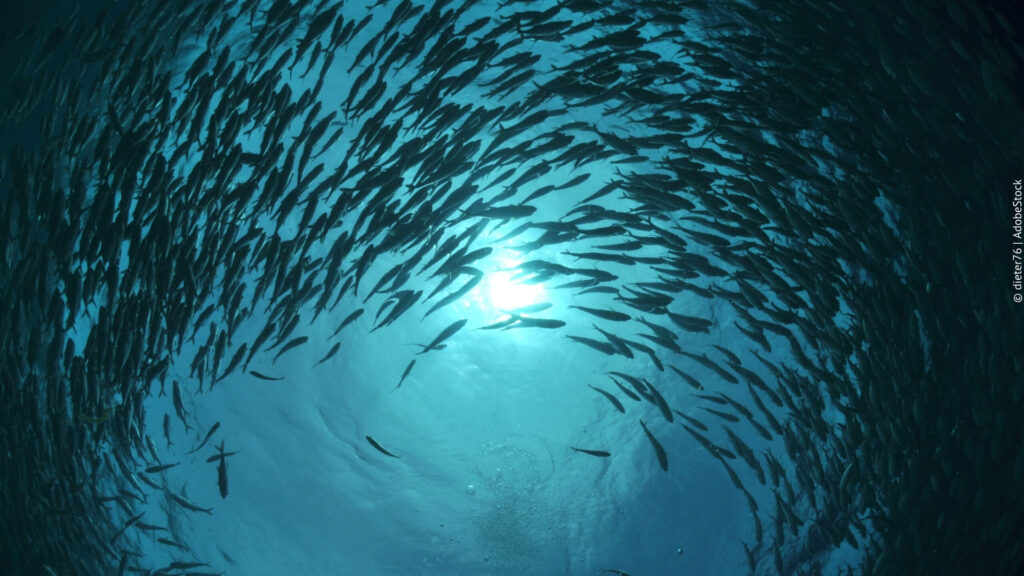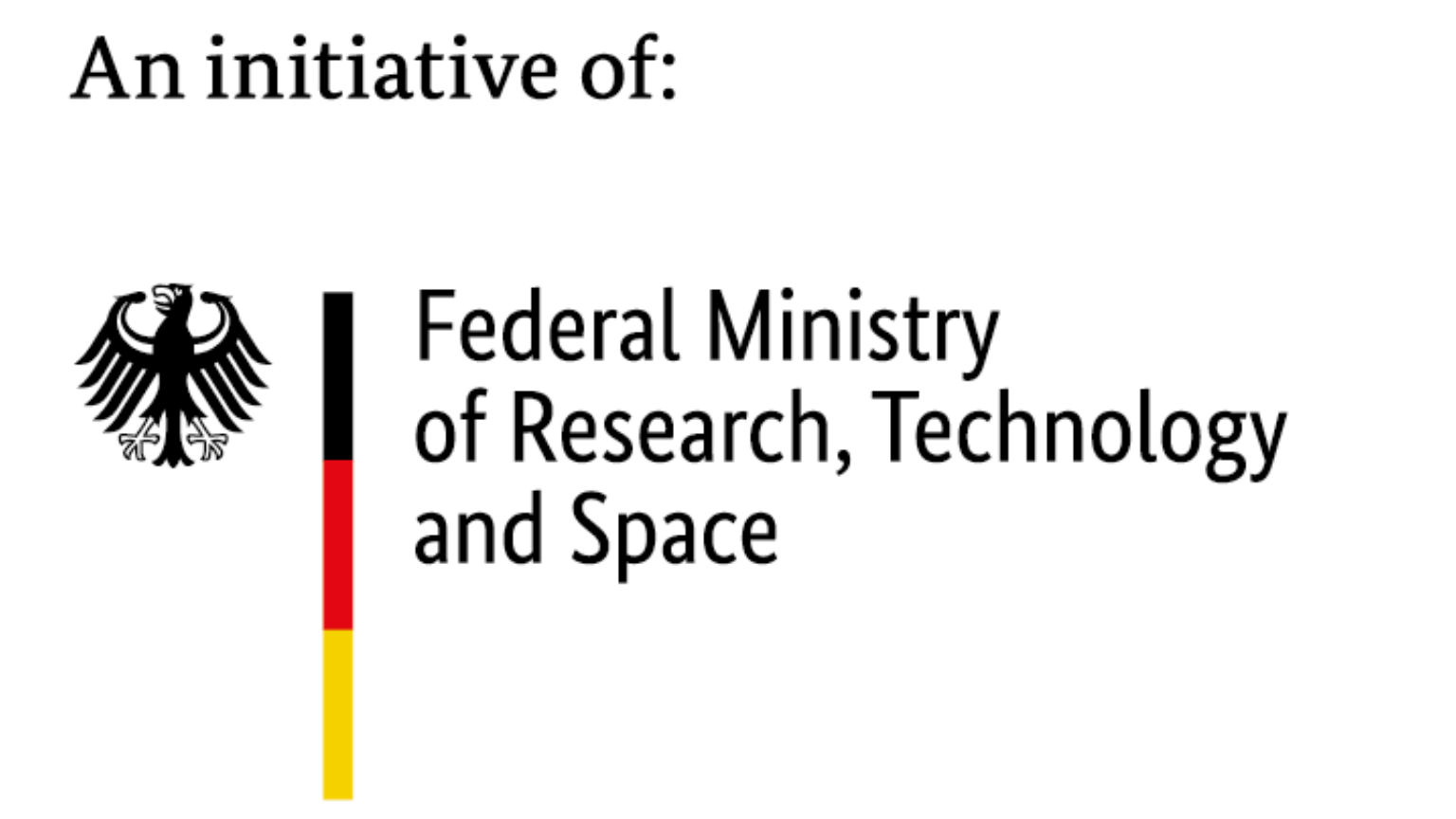
Committees
On 18 July 2019, the administrative agreement came into force which establishes the German Marine Research Alliance (DAM) and governs its funding. It defines the tasks and objectives of the DAM as well as its structure and its committees.
The bodies of the German Marine Research Alliance are
- the General Assembly
- the Executive Board
- the Administrative Council
- the International Advisory Board
- DAM representatives
Furthermore, a Stakeholder Forum was established in spring 2021 as an independent advisory body to the DAM.
General Assembly
The General Assembly decides on the principles that guide the work of the German Marine Research Alliance. It elects the Executive Board and the International Advisory Board. The General Assembly receives the annual report and the annual financial statement submitted by the Executive Board after approval by the Administrative Council and exonerates the Executive Board at the proposal of the Administrative Council. The General Assembly can appoint special representatives in accordance with § 30 BGB (German Civil Code) and assign them their own areas of responsibility. Furthermore, the General Assembly decides on all other duties assigned to the General Assembly by the law or elsewhere in the Statutes. Overview of the DAM members.
Executive Board
The Executive Board implements the common goals of the DAM on behalf of the General Assembly and is given the necessary authority to do so. The Executive Board manages the association and draws up the conceptual strategy of the German Marine Research Alliance, which is to be approved by the General Assembly and the Administrative Council.
Members of the Executive Board
- Dr. Joachim Harms, Chairman of the Executive Board
- Prof. Dr. Michael Schulz, Deputy Chairman of the Executive Board
- Prof. Dr. Ulrich Bathmann, Member of the Executive Board
- Prof. Dr. Katja Matthes, Member of the Executive Board
Administrative Council
The Federal Government and the participating federal states are involved in the decisions made by the DAM through its Administrative Council. The Administrative Council monitors the work of the DAM and the Executive Board. It consists of six voting members, one of whom is delegated by the Federal Government and one by each of the participating federal states. The member delegated by the Federal Government holds as many votes as the participating states have in total. The Administrative Council reaches its decisions by a simple majority.
Members of the Administrative Council
- Stefan Müller, Head of the Department “Provision for the Future – Basic Research and Research for Sustainable Development”, Federal Ministry of Education and Research (BMBF) (Chair)
- Friederike Kampschulte, Head of Department “Science”, Ministry of Education, Science and and Cultural Affairs of the State of Schleswig-Holstein (MBWK)
- Rüdiger Eichel, Head of the Department “Research, Innovation, Europe”, Ministry of Science and Cultural Affairs of Lower Saxony
- Dr. Rolf Greve, Head of Department, Ministry of Science, Research and Equality, Free and Hanseatic City of Hamburg
- Woldemar Venohr, Head of the Science and Research Department, Universities, Ministry of Education, Science and Cultural Affairs, Mecklenburg-Western Pomerania
- Kay Wenzel, Head of the Department “Universities and Research”, Senator for Science and Ports, Free Hanseatic City of Bremen
International Advisory Board
The International Advisory Board is the independent scientific advisory body of the German Marine Research Alliance. The International Advisory Board reviews and evaluates proposals for projects and activities in the core areas and assesses the implementation of the DAM’s research missions.
Members of the International Advisory Board
- Prof. Dr. Peter Schlosser, Chairman (Arizona State University, USA)
- Petra Mahnke (CEO of the German Association for Marine Technology, Germany)
- Prof. Dr. Kate Moran (University of Victoria and CEO of Ocean Networks, Canada)
- Prof. Dr. Nadia Pinardi (University of Bologna, Italy)
- Assoc. Prof. Dr. Thorsten Blenckner (University Stockholm, Sweden)
- Prof. Dr. Katherine Richardson (University of Copenhagen, Denmark)
- Dr. Allison Schaap (National Oceanography Center, United Kingdom)
- Prof. Dr. Stefan Schouten (NIOZ – Royal Netherlands Institute for Sea Research, The Netherlands)
- Sebastian Unger (Subdivision Head Marine Protection, BMUKN)
Stakeholder Forum
The Stakeholder Forum is an independent advisory body to the DAM with 30 or so members, who are drawn from politics, business and civil society, and is intended as a “sounding board”. To this end, the Forum receives information about ongoing and planned DAM activities and provides feedback on them from the different perspectives of its members. The Forum also serves an important function in generating new ideas and identifying topics for future research missions and other DAM activities.
Members of the Stakeholder Forum
Politics / Federal
- Federal Ministry of Research, Technology and Space (BFTR), Ministerial Counsellor Dr. Zage Kaculevski
- Federal Ministry of Transport (BMV), Björn Oriwohl
- Federal Ministry of Food, Agriculture and Communit (BMLEH), Stefan Hübner
- Federal Ministry for the Environment, Nature Conservation and Nuclear Safety (BMUKN), Dr. Manuela Krakau
- Federal Ministry of Defence (BMVg), Chief Technical Director Dr. Uwe Kretschmer
- Federal Ministry for Economic Affairs and Energy (BMWE), Ministerial Counsellor Dr. Anja Stenger
- Federal Ministry for Economic Cooperation and Development (BMZ), Anna-Lena Klaßen-Azabdaftari
Politics / North German States
- Federal Government/Federal States Working Group North and Baltic Sea (BLANO), Dr. Inga Krämer
- Public Authority for Science, Research, Equal Opportunities and Districts, City of Hamburg, State Council Dr. Eva Gümbel
- The Senator for Science and Ports, Bremen, State Council Tim Cordßen-Ryglewski
- Ministry of Education, Science and Culture in the state of Mecklenburg-West Pomerania, State Secretary Susanne Bowen
- Ministry of Education, Science and Culture in the state of Schleswig-Holstein, State Secretary Guido Wendt
- Ministry of Science and Culture, Lower Saxony, State Secretary Prof. Dr. Joachim Schachtner
Business / Associations
- Federal Association of Offshore Wind Energy e.V (BWO), Stefan Thimm
- German Fisheries Association (DFV), Peter Breckling
- German Maritime Centre (DMZ), Dr. Matthias Catón
- German Association for Marine Technology (GMT), Petra Mahnke
- German Association for Mechanical and Plant Engineering (VDMA), Alexandra Dreyer
Government Agencies / Technical Sciences
- German Coastal Engineering Research Council (KFKI), Prof. Dr. Frank Thorenz
Civil Society / NGOs and Foundations
- Brot für die Welt, Francisco Marí
- BUND (Friends of the Earth Germany), Bettina Taylor
- Deutsche Bundesstiftung Umwelt (DBU), Dr. Maximilian Hempel
- German Society for Marine Research (DGM), Dr. Anna Canning
- German Ocean Foundation, Frank Schweikert
- Fair Oceans, Kai Kaschinski
- Greenpeace Germany, Dr. Sandra Schöttner
- Nature and Biodiversity Conservation Union Germany (NABU), Dr. Kim Detloff
- World Wide Fund for Nature (WWF) Germany, Finn Viehberg
European Level
- Joint Programming Initiative Oceans (JPI Oceans), Dr. Thorsten Kiefer
- Coordinator for the European Maritime Space (EMS), Gesine Meißner
Other
- International Conference for YOUNG Marine Researchers (ICYMARE), Simon Jungblut
- Wissenschaft im Dialog (WID), Dr. Benedikt Fecher
Stakeholder Forum Regulations (in German): PDF
Questions about the DAM committees?
For general information or queries about the committees, please contact Annekatrin Lehmann.
Newsletter
Always up to date with the DAM newsletter. (German only)
